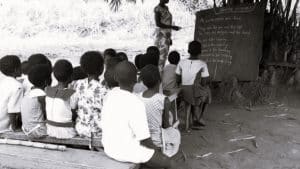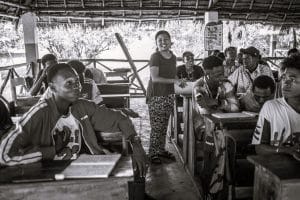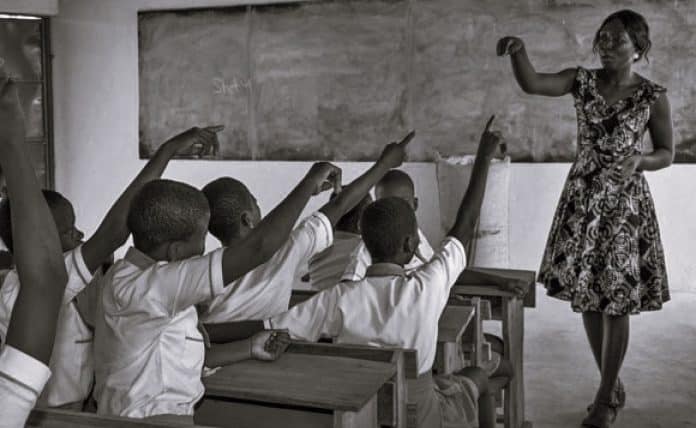The State of Literacy in Tanzania: A Comprehensive Look at the 2015 Statistics
Introduction to literacy in Tanzania
In Tanzania, literacy plays a vital role in personal and national development. It is not only a key indicator of a country’s progress but also a fundamental human right. Literacy empowers individuals by providing access to education, employment opportunities, and the ability to participate fully in society. Understanding the state of literacy in this East African country requires a comprehensive look at the Tanzania literacy rate 2015, which sheds light on the current situation and the challenges that lie ahead.
Understanding literacy rates and their significance
Literacy rates are a measure of the percentage of individuals in a population who can read and write. The Tanzania literacy rate 2015 was 76.9%, indicating that a significant portion of the population still lacked basic reading and writing skills. This statistic highlights the need for continued efforts to improve literacy levels and ensure that all Tanzanians have access to quality education.
The significance of literacy cannot be overstated. It is the foundation for acquiring knowledge, understanding information, and engaging in critical thinking. Literate individuals are better equipped to make informed decisions, advocate for their rights, and contribute to the development of their communities. Furthermore, literacy is closely linked to economic growth, as it enables individuals to participate in the workforce and contribute to the overall productivity of the nation.
The importance of literacy in personal and national development
Literacy is a transformative force that has the power to change lives and societies. For individuals, literacy opens doors to opportunities, improves health outcomes, and enhances overall well-being. It allows individuals to access information, communicate effectively, and navigate the modern world. Moreover, literacy empowers individuals to break the cycle of poverty and create a better future for themselves and their families.
On a national level, literacy is a vital component of sustainable development. It is closely linked to economic growth, social stability, and political participation. A literate population is better equipped to contribute to the country’s workforce, innovate, and drive economic progress. Furthermore, literacy is essential for promoting democratic values, ensuring equal access to education, and reducing inequalities.
Overview of the 2015 literacy statistics in Tanzania
The Tanzania literacy rate 2015 provides valuable insights into the current state of literacy in the country. According to the data, the overall literacy rate was 76.9%. However, there were significant disparities between urban and rural areas, with urban literacy rates reaching 91.2% compared to rural rates of 69.4%. This urban-rural divide highlights the need for targeted interventions to improve literacy rates in rural communities.
Gender disparities were also evident, with female literacy rates lagging behind male rates. While the male literacy rate stood at 83.2%, the female literacy rate was significantly lower at 70.3%. This gender gap underscores the importance of addressing the barriers that prevent girls and women from accessing education and acquiring literacy skills.
Factors influencing literacy rates in Tanzania

Several factors contribute to the literacy rates in Tanzania. One key factor is access to quality education. Many Tanzanians, especially those in rural areas, face challenges in accessing schools and educational resources. Limited infrastructure, long distances to schools, and lack of trained teachers all contribute to low literacy rates. Additionally, poverty and socio-economic inequalities prevent many children from attending school and acquiring essential literacy skills.
Another factor is the language barrier. While Swahili is the national language, there are numerous ethnic languages spoken in Tanzania. This linguistic diversity poses challenges for education, as children may not have access to materials in their native language. Inadequate language support hampers the development of literacy skills and limits educational opportunities.
Challenges in improving literacy in Tanzania
Improving literacy rates in Tanzania is not without its challenges. Limited resources, including funding and infrastructure, pose significant barriers to progress. The education system faces a shortage of qualified teachers, inadequate learning materials, and overcrowded classrooms. Without proper investment in education, it is difficult to provide quality instruction and support the development of literacy skills.
Socio-cultural factors also play a role in hindering literacy development. Traditional gender roles and expectations often limit girls’ access to education, perpetuating gender disparities in literacy rates. Moreover, deep-rooted societal beliefs and practices may undervalue the importance of education, leading to low literacy levels in certain communities. All these factors were noted in the Tanzania literacy rate 2015. It is important that the data collotaed should be studied in order to find mitigate these challenges.
Initiatives and programs to improve literacy in Tanzania

Recognizing the importance of literacy, Tanzania has implemented various initiatives and programs to improve literacy rates across the country. The government, in collaboration with non-governmental organizations and international partners, has launched campaigns to promote literacy and increase access to education.
One such initiative is the Tanzania National Reading Campaign (TNRC), which aims to improve reading skills among children and adults. Through partnerships with schools, libraries, and community centers, the TNRC provides reading materials, training for teachers, and literacy programs for adults. By fostering a culture of reading, the TNRC seeks to enhance literacy skills and promote a lifelong love for learning.
The role of government in promoting literacy
The Tanzanian government plays a crucial role in promoting literacy and ensuring equitable access to education. The Ministry of Education, Science, and Technology is responsible for formulating policies, developing curriculum frameworks, and coordinating efforts to improve literacy rates. The government has made significant investments in education, including the construction of schools, recruitment and training of teachers, and provision of learning materials.
To address gender disparities in literacy, the government has implemented the Gender in Education Policy, which aims to promote equal access to quality education for boys and girls. This policy recognizes the importance of empowering girls through education and provides measures to eliminate barriers that hinder their educational attainment.
Success stories and case studies in improving literacy in Tanzania

Despite the challenges, there have been success stories and case studies that demonstrate the positive impact of literacy programs in Tanzania. One such example is the Zanzibar Literacy Program, which targets adults who have missed out on formal education. By providing literacy classes and vocational training, the program has empowered thousands of individuals to improve their literacy skills and gain economic independence.
Another success story is the Mobile Community Libraries project, which brings books and educational resources to remote communities. Through mobile libraries, children and adults in rural areas have access to reading materials and literacy programs. This initiative has not only improved literacy rates but also fostered a love for reading and learning among community members.
The way forward for literacy in Tanzania
The state of literacy in Tanzania is a critical issue that requires concerted efforts from all stakeholders. While progress has been made, there is still much work to be done to ensure that every Tanzanian has access to quality education and the opportunity to acquire literacy skills. To improve literacy rates, it is essential to address the barriers that prevent access to education, such as poverty, gender inequality, and limited resources, as well as work with the data from the Tanzania literacy rate 2015. Investing in education, training qualified teachers, and providing adequate learning materials are key steps towards achieving universal literacy in Tanzania.
By prioritizing literacy, Tanzania can unlock the potential of its people, foster economic growth, and build a prosperous future for all. It is crucial for the government, civil society organizations, and international partners to collaborate and implement evidence-based strategies that address the root causes of low literacy rates. Together, we can create a society where every individual has the opportunity to read, write, and thrive.
For more articles related to Education in Tanzania, click here!































